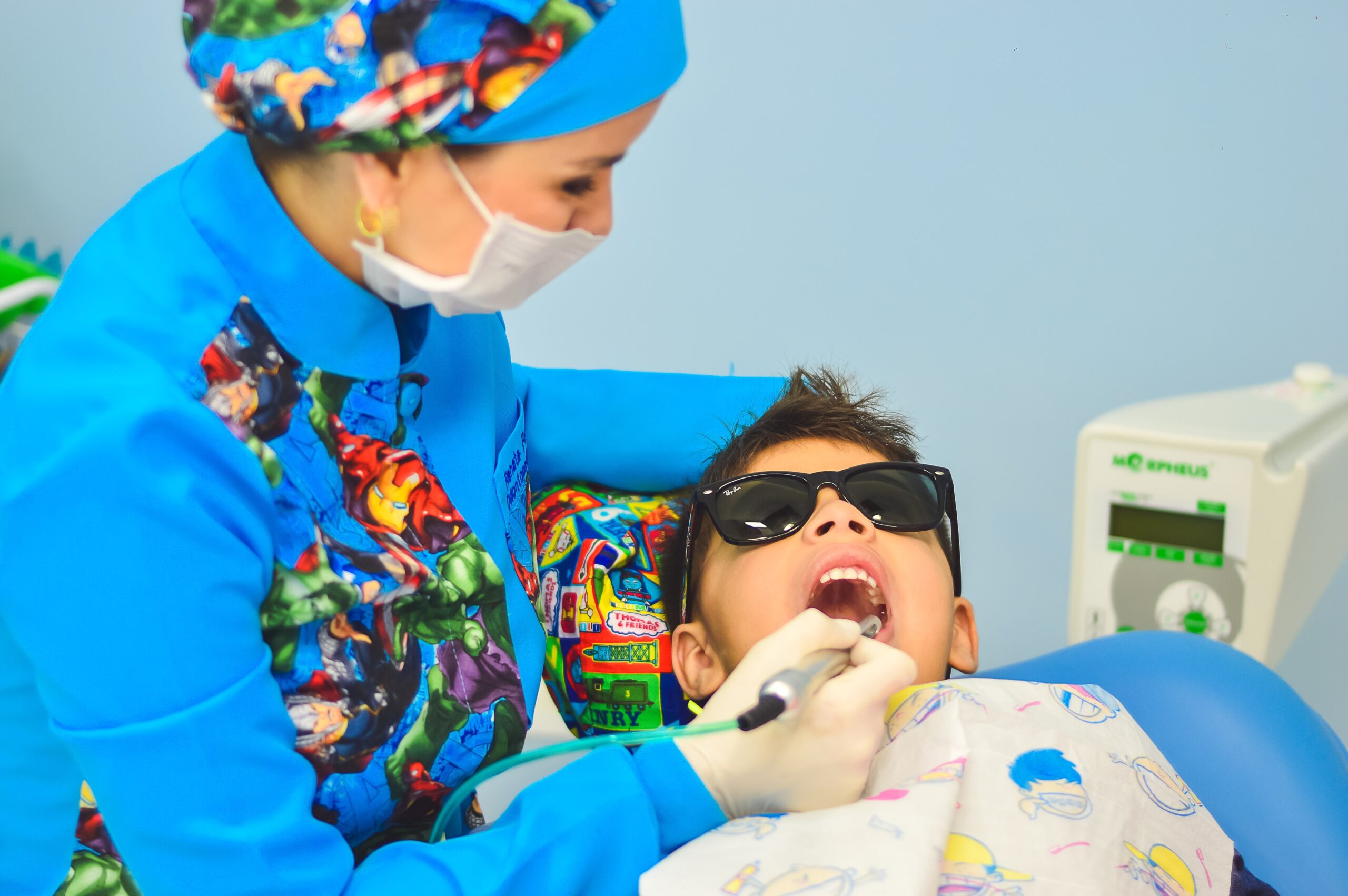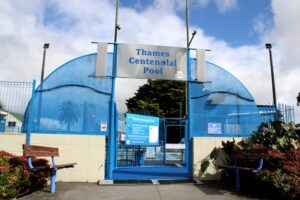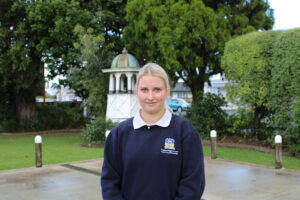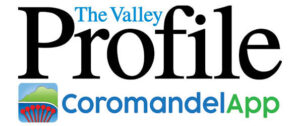Since June last year, all has been quiet on the mobile dentist front.
Eight schools in and around Thames have stopped receiving visits from the dental nurses who arrived on wheels.
Instead, a pilot between Te Whatu Ora Health New Zealand and local health provider Te Korowai Hauora o Hauraki has encouraged tamariki to have their dental checks completed in Te Korowai’s new clinic, Pito Hauora, in the centre of Thames’ CBD.
But while some in the community are excited about the designated space for dental health, others fear it’ll lead to access issues, and without the attentiveness of dentists in schools, the state of children’s teeth would diminish.

Moanataiari School principal David Brock has “major” concerns.
“At the moment, what’s happening is that the only parents that are really getting any service are the parents of children who obviously have problems,” he said.
“Whereas, if you’ve got a dental service that is more proactive in looking at children’s teeth, they’re going to be able to catch the problems before they emerge to any great extent.
“At the moment, the system is badly failing our children.”
Mr Brock said Moanataiari hosted mobile dentists once a year, but since June, 2022, that privilege was taken away by the new pilot.
He said communication with Te Whatu Ora had been “problematic”.
“We did get visits from [Te Whatu Ora] prior to the service officially commencing; however, there was no genuine consultation or collaboration; the visit was really a notification,” he said.
“The [Te Whatu Ora] strategy has not been inclusive… it’s not particularly well thought through. Certainly, from a school perspective and from the perspective of students, it’s not a solution that is really workable.”
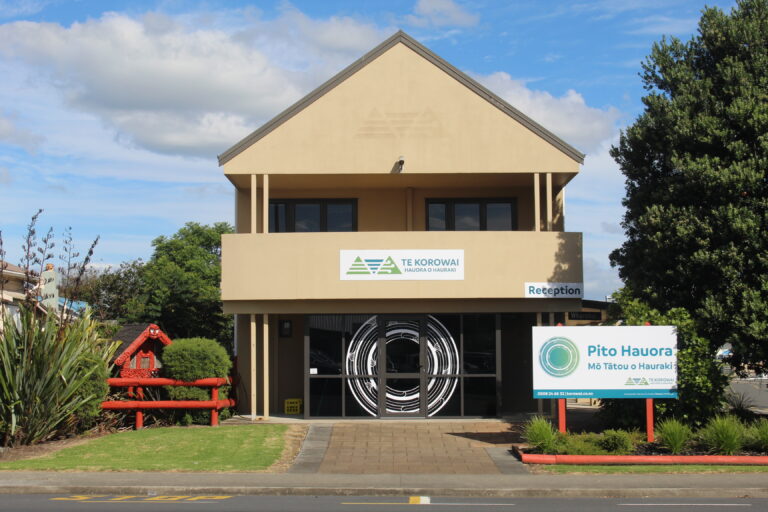
Mr Brock said the beauty of the mobile van was that service was guaranteed for the whole school, not just parts of it.
He’s worried about the ability of his school whānau being able to access the new arrangement off-site, having to take time off work, or facing issues with transportation.
“What is a major concern is if our children don’t receive dental care at a young age, when it does come to the parents’ attention that there is a problem, they’re going to require more dental treatment than what would’ve been required in the first instance,” he said.
“From a school perspective, we would like to see the service we’ve had previously continued. We would like to see the dental vans going back into schools where that particular model was working successfully. Don’t change a system that’s working, and that was clearly working.”
Father Justin Gill said dental care for his two children, aged 11 and 8, had always been “one less thing to worry about”.
“When [the van] is at school, they’re really proactive with problems,” he said. “The mobile clinics have always been good for me.
“I’m just concerned about the wait times at [the new site], because with lots of schools in the area vying for a spot to be seen… I don’t see how it’s going to work.”
However, Justin was pleased there would be a designated clinic in Thames, because he had seen first-hand how difficult it was to track down care for his kids.
When his daughter was having tooth pain, he had to phone a school in Coromandel that was hosting the mobile dental van. After a number of calls, they directed him to Mangatawhiri. When that dentist was off work sick, Justin and his daughter had to travel to Morrinsville.
“I was lucky, I’ve got a car, but if I didn’t, I would have been absolutely stuffed,” he said.
And for other schools involved in the pilot, such as Pūriri School which does not have the luxury of hosting the mobile dental van, a designated space would be a great benefit.
“All our students need to be taken to nearby schools for their dental check ups already,” principal Lydia Lester said.
“As Te Korowai would provide a specific spot for dental visits, I agree that it would be much easier for whānau to book in – especially when dental issues pop up out of sync with when the mobile unit is close by.”
In the Ministry of Health’s ‘Age 5 and Year 8 oral health data’ received from the Community Oral Health Service, statistics showed the level of decayed, missing and filled teeth across the country.
In 2021 within the Waikato, 2360 school children aged five were examined and there were 4566 “decayed, missing and filled teeth” recorded.
That same year, there were 6103 Year 8s examined, and 3619 “decayed, missing and filled teeth” recorded.
Coromandel MP Scott Simpson was unaware of the pilot, but said he was “sceptical” about its design. He wanted to have assurances that the dental care and wellbeing of school children in the Thames area was not going to be compromised.
“Our health system is in complete meltdown crisis at the moment, and from my point of view, there seems to be far too much tinkering and moving around of deck chairs… My concern is we already have a significant issue, not just locally, but nationwide with children’s dental care,” he said. “I’m instinctively concerned by what could be seen by some as a further reduction or dilution of existing services that are being refocused elsewhere.”
Mr Simpson said taking away dental care provided to school children within schools was an “unproven theoretical move” that could potentially result in children having less access to the care they need.
“It seems crazy to me to have school kids’ dental care put at risk.”
Te Whatu Ora Waikato’s interim lead hospital and specialist services Michelle Sutherland told The Profile there were eight schools involved in the pilot within Thames.
They were: Parawai School, Thames South School, Moanataiari School, St Francis School, Te Puru School, Tapu School, Matatoki School and Puriri School.
The dental clinic was still under construction at Pito Hauora, she said, but when completed, it would offer a “higher level of care than previously available in the community”.
“This will include oral surgeries which would have otherwise required a hospital visit. A community-based service also reduces wait times for complex procedures.”
Michelle said in most cases, parents and caregivers accompanied children to their appointments, which was encouraged so they could be part of any treatment plan.
For families who may face travel or scheduling challenges, the fixed site offered appointments all-year-round and there were transport options in place, she said.
These included a free – or with voluntary donation – shuttle service which could pick children and whānau up from home or school.
Te Korowai manukura hauora [chief executive officer] Tammy Dehar said since the launch of Pito Hauora in July, 2022, the coordination of what screening and prevention services that are delivered within the hub had been handed to Te Puna Hauora Matua o Hauraki [Hauraki PHO], with the Pito Hauora hub continuing to be staffed with a mix of Te Korowai Hauora and Te Whatu Ora staff.
“Prior to and following the launch of Pito Hauora and the various discussions had with Te Whatu Ora and Hauraki PHO, Te Korowai Hauora o Hauraki have always expressed our wawata [aspirations] to have a dental health facility, within the Hauraki rohe, that is able to support the needs of our most vulnerable whānau and definitely to include relief of pain,” Tammy said.
“Discussions have occurred, and continue, around what mechanisms that we, as Te Korowai Hauora o Hauraki, could do to support whānau with getting their tamariki to the dental services. “We understand that more intimate discussions are occurring between Te Whatu Ora and the schools, and finalising as to how Te Korowai Hauora o Hauraki can support.”
The pilot will be reviewed in 12 months, Te Whatu Ora Waikato said, and its community oral health services would “continuously review service delivery options to better meet the needs of the community”.

